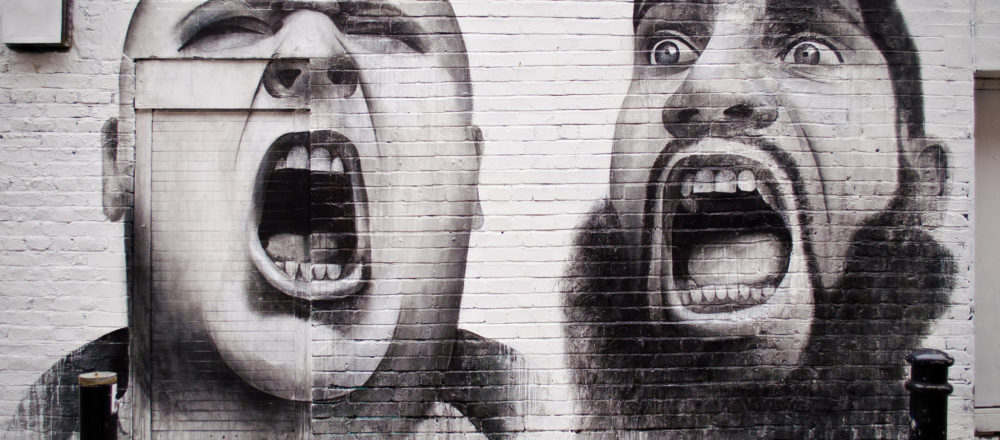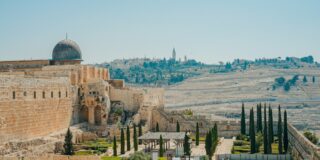Recent crimes involving youth of African heritage have been sensationalised by media and politicians to cultivate fear of a so-called African gang crisis in the lead up to the Victorian election. Earlier this year, Minister for Home Affairs Peter Dutton claimed that Victorians were “scared to go out to restaurants” because of “African gang violence”. Is it to increase TV ratings, score political points or dehumanise people who look different from them?
I am not surprised by this racialised fear-mongering. Since I arrived in Australia in 2003 as a refugee from Sudan, I have seen and experienced these patterns of demonisation of the Sudanese community. This is not a new phenomenon, it is a trend.
So, who are these so-called African gangs? According to Channel Seven and politicians like Peter Dutton, they are mostly youth from African backgrounds, majority Sudanese. And they are criminals — shoplifters, car-hijackers, burglars, robbers, drug dealers, and home invaders.
In reality, youth who engage in these such criminal behaviour come from many different ethnic backgrounds — they are not solely Sudanese. As a matter of fact, they are young people experiencing socio-economic and learning environment challenges, who have found themselves alienated and on the wrong side of the law. Many have dropped out of school and found themselves with no place to go but the streets, leading them to engage in petty and serious crimes such as shoplifting for food, car-hijacking, burglary, robbery, drug dealing and home invasion.
Many of these young people come from low socio-economic, single-parent households with little to no education. And when you combined this with school bullying, pervasive societal and institutional racism, and the trauma many experienced as refugees when migrating to Australia, one would think again before pointing a finger.
It is our collective responsibility as a society to seek understanding rather than sow the seeds of division, hate and racial prejudice. Doesn’t peace and harmony come by seeking understanding and collaboration?
In July 2005, shortly after commencing my first university semester in Wollongong, I turned on the TV to a series of inflammatory comments: “Australia is becoming a Third World colony by allowing non-white immigration”; “African migration increases crime”; “HSC results point to a rising ruling class of Asians”. These are words spoken by Professor Andrew Fraser, a former academic in public law at Macquarie University.
Professor Fraser reportedly claimed that Australia needs to withdraw from the Refugee Convention to avoid becoming “a colony of the Third World”.
At the time, I had only been in Australia for two years. I was dumbfounded by this racially charged commentary from a supposedly educated man. The openly blatant display of ignorance was difficult to let slide. Feeling hurt, I swallowed whatever pride I had and changed the channel.
A few weeks later, as I was walking to the university, a Caucasian mother with two young children, standing in front of their house, suddenly and lazily yelled racial abuse at me. They called me the ‘N’ word and shouted “Go back to your country, go back to where you came from”. A couple of seconds passed before I realised what was happening. Experiencing mixed feelings, I waved at them and walked on. A man walking the opposite direction said, “Sorry mate for the abuse”. “Thank you” I responded, and he nodded. The mother and children went silent. I wondered if the man’s comments came from the embarrassment he felt on behalf of Australians.
Only the previous evening, before my encounter with the mother and her children, Channel Seven and Channel Nine aired a news story on gangs of Sudanese youth terrorising Melbourne suburbs. The mother and kids must have watched the news and felt rage at these so-called gangs and their background. Even a small coastal town like Wollongong was caught up in the domino effect of the so-called African gang crisis.
A language of demonisation and racial prejudice leads to more suspicion and distrust.
A few days passed and a young Sudanese man was bashed to death at Noble Park train station in Melbourne by two Caucasian boys. In Tamworth, in northern New South Wales, Sudanese workers in the local abattoir were reportedly attacked and racially abused.
These incidents led me to question the role of media reporting in cultivating racialised fear prior to these attacks.
If we press forward to 2014, SBS aired a program called Living with the Enemy, which featured Abraham, a Sudanese migrant and a slam poet based in Melbourne as well as Nick, a founder of a fledgling ultranationalist political party. In the program, Nick said “Allowing Africans like Abraham into Australia is asking for trouble. They can’t assimilate, are a welfare drain on the economy, and have nothing to contribute to a society built on Anglo-Celtic foundations.” In the same episode, Professor Fraser, resurfaces and says “Australia doesn’t need your expertise, whether you’re a medical doctor or an accountant. Go back to your country where your skills are needed.”
The program was mesmerising and thought-provoking. I found the attitudes of Nick and Professor Fraser towards migrants to be repugnant. The possible consequences of these perceptions about others are dangerous because they appear to take seed in the broader community. When a law professor like Fraser proclaimed Sub-Saharan Africans have low IQs, and that Asians have slightly high IQ than Europeans, it signalled to me that our common humanity was under attack. It was shocking to hear words similar to those that led to the Holocaust and the Rwandan genocide from a supposedly educated man.
It is our collective responsibility as a society to seek understanding rather than sow the seeds of division, hate and racial prejudice. Doesn’t peace and harmony come by seeking understanding and collaboration?
These so-called African gangs are made up of human beings who are, for one reason or another, lost and in need of assistance. A language of demonisation and racial prejudice leads to more suspicion and distrust. I believe politicians have the important responsibility of bringing people together, and for the media to report accurately and responsibly without inciting societal division.
As a former boy soldier myself, and having spent over a decade in a refugee camp, humanity in the form of the United Nations and organisations such as the United Nations High Commissioner for Refugees sustained my life and provided me hope. After much hardship, I dreamed to live in a place where I could freely pursue my life goals and dreams without fear of judgement and prejudice. I associated civilisation with peace and harmony, education with understanding and peaceful co-existence, living life without judgement based on the colour of your skin.
Unfortunately with the upcoming Victorian election, politicians have stepped up their rhetoric on the so-called African gang crisis in Melbourne for cheap political gains. An advertisement by the Liberal party stated “Only the Liberals will: stop gangs hunting in packs“. Jason Wood, a liberal MP, said that African gangs were not being used as an election issue, but rather the “number” of Sudanese youth involved and the “fear” they are evoking was driving the debate.
We will soon find out if the so-called African gang crisis will win votes for the Liberal party at the Victorian election.
The consequences of this divisive sensationalism is serious. I agree with former Race Discrimination Commissioner Tim Soutphonmmasane, who said, “There is a clear and urgent risk to racial harmony in Australia if the public debate about Sudanese-Australians and crime continues as it is”.
In life, only we can control our contact and interaction with the external world. As the psychiatrist Viktor E. Frankl said, “Between stimulus and response there is space. In that space is our power to choose our response. In our response lies our growth and our freedom.”
Every day, when I leave my house, I walk the streets first and foremost as a human being. And this has set me free from the constant noise fuelled by media sensationalism.



